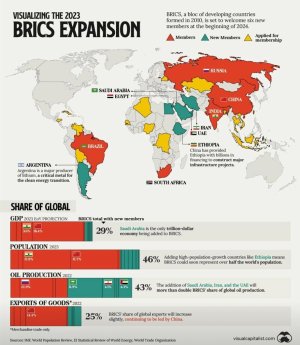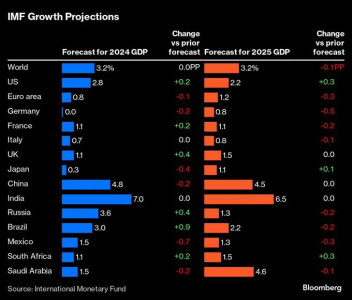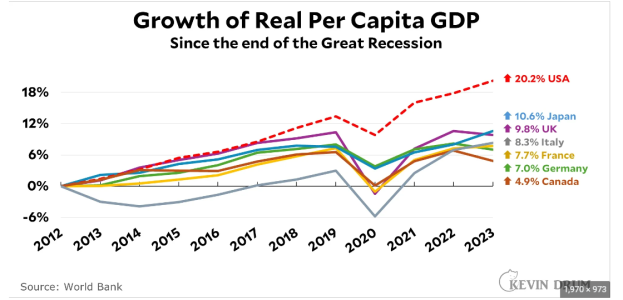WicketLord
Tape Ball Star
- Joined
- Aug 4, 2023
- Runs
- 723
Brazil's President called on Wednesday for the BRICS nations to create a common currency for trade and investment between each other, as a means of reducing their vulnerability to dollar exchange rate fluctuations.
Luiz Inacio Lula da Silva made the proposal at a BRICS summit in Johannesburg.
Officials and economists have pointed out the difficulties involved in such a project, given the economic, political and geographic disparities between Brazil, Russia, India, China and South Africa.
WHY DOES LULA WANT A BRICS CURRENCY?
Brazil's president doesn't believe nations that don't use the dollar should be forced to trade in the currency, and he has also advocated for a common currency in the Mercosur bloc of South American countries.
A BRICS currency "increases our payment options and reduces our vulnerabilities," he told the summit's opening plenary session.
WHAT DO OTHER BRICS LEADERS THINK?
South African officials had said a BRICS currency was not on the agenda for the summit.
In July, India's foreign minister said, "there is no idea of a BRICS currency". Its foreign secretary said before departing for the summit that boosting trade in national currencies would be discussed.
Russian President Vladimir Putin said the gathering, which ha attended via videolink, would discuss switching trade between member countries away from the dollar to national currencies.
China has not commented on the idea. President Xi Jinping spoke at the summit of promoting "the reform of the international financial and monetary system"
Luiz Inacio Lula da Silva made the proposal at a BRICS summit in Johannesburg.
Officials and economists have pointed out the difficulties involved in such a project, given the economic, political and geographic disparities between Brazil, Russia, India, China and South Africa.
WHY DOES LULA WANT A BRICS CURRENCY?
Brazil's president doesn't believe nations that don't use the dollar should be forced to trade in the currency, and he has also advocated for a common currency in the Mercosur bloc of South American countries.
A BRICS currency "increases our payment options and reduces our vulnerabilities," he told the summit's opening plenary session.
WHAT DO OTHER BRICS LEADERS THINK?
South African officials had said a BRICS currency was not on the agenda for the summit.
In July, India's foreign minister said, "there is no idea of a BRICS currency". Its foreign secretary said before departing for the summit that boosting trade in national currencies would be discussed.
Russian President Vladimir Putin said the gathering, which ha attended via videolink, would discuss switching trade between member countries away from the dollar to national currencies.
China has not commented on the idea. President Xi Jinping spoke at the summit of promoting "the reform of the international financial and monetary system"












